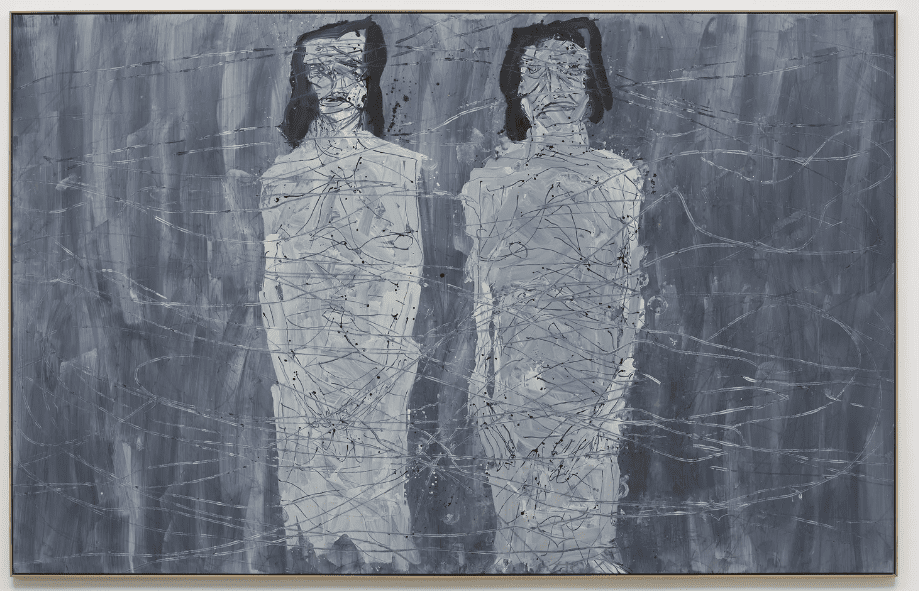Painful though it may be to recall, it was summer once. Cool drinks were sipped at pavement cafes, flesh was bared and balding scalps reddened and peeled in the light of the now-forgotten sun.
Inevitably, a defining pop album was needed to soundtrack the fleeting season. Summer Camp's Welcome to Condale seemed to most music writers to be just the thing. Pop sass braced with rock raunch, a retrodelic romp through an imaginary all-American idyll of cheerleaders, T-Birds and prom-night cooties. You'll love it, the music press declared, it's a switchblade-embedded popsicle of a record; the sonic equivalent of Rizzo getting knocked-up by Kenickie; a glossy cross between Blondie and Bowie.
'Blee', said the music-buying public, 'it sounds like Roxette'.
That notwithstanding, Welcome to Condale proved one thing – that the yearning for a truly interesting and gutsy alt-pop act is becoming unbearable. Something slick but frivolous, glamourous but wholesome, pretty but deft. The frantic dithering inthe music press over Lana del Ray is symptomatic of the same unrequited urges for something or someone to fill one of the only unplugged gaps in contemporary pop music – the female-fronted, high-concept guitar-pop band (with a bit of intelligent allure). Trailer Trash Tracys though, might just fit.
glamourous but wholesome, pretty but deft
Opening boldly with a groaning mishmash of voice, electronics and percussion, Ester strains the seams of what is acceptable as alt-pop. There is an off-kilter distance to the album that stops it ever getting too familiar or derivative, despite the procession of just-recognisable influences which drift in and out of range.
Second track, 'You Wish You Were Red' drops the doomy bass twang of Julee Cruise's theme song to Twin Peaks into a skaggy-vocal that owes a great deal to 'Some Candy Talking'. Indeed, Psychocandy would be the ideal title for the album were it not already allocated. The Trailer Trash Tracys sound has much more sweetness to it than anything the Reid brothers ever performed, and the psych-rock aspect is updated to include electronics and drum-programming, not simply that late eighties approach of lading on the reverb pedals and hoping for the best.
Later on, 'Dies in 55' pivots around a repeated organ arpeggio and some very deliberately clunky drum machine patterns. It's tongue-in-cheek without erring too far into clever-clever territory, partly because of a sincere-sounding vocal and partly because of a very satisfying bass note that punctuates and punctures the sugary edifice when it becomes too cloying. If you can bring yourself to imagining a cross between Michael Jackson's 'Human Nature', The Lightning Seeds's 'Pure and Simple' and Propaganda's 'Duel', you'd come close to nailing the nagging sense of 'heard that somewhere before' that accompanies the song.
chunks of various indie rock-pop tropes fleshing out the album
That Propaganda reference continues in 'Englehardt's Arizona', more in the phrasing of Suzanne Aztoria’s vocal against the high-powered guitar shred that is the song's primary focus. It's not that there are moments on the album that can be pulled out, examined and identified as being direct copies of 80s production techniques, or even that vague and ever-convenient term 'homage' to the period, but there is a definite common ground in the atmosphere of Ester and that of 80s alternative pop. Or is it early 90s? That's the difficult part, because whilst there are chunks of various indie rock-pop tropes fleshing out the album, they are taken from a period spanning some ten or fifteen years. Heroin-muzzy guitars from late eighties JAMC; wistful bored-girl vocals from the school of Kim Gordon; obviously sequenced beats screaming OMD. Nevertheless, it's not a history project.
'Strangling Good Guys' is an almost-discordant, almost lo-fi, creaky mess of clanging guitars, breathy vocal and crashing snares which should by rights fall apart into a sonically painful disaster of overambition. There are a couple of reasons why this may be the case. Some of them: a well-rehearsed band, luck, dogged repetition – are not terribly interesting.
Alternatively, there is the possibility that the song teeters on the brink of discordancy (as does much of the album) because it is written and performed using a 'solfeggio scale'.
Daunting Italian musicological phrases aside, a solfeggio scale is a simple concept, and familiar even to the least musicially-minded of listeners. Julie Andrews sang of it in The Sound of Music. Breaking musical notation into a seven-note scale (do, re, mi…) instead of the more usual group of eight notes to an octave, is the main principal. Trailer Trash Tracys use a solfeggio scale on Ester. Whether they use a 'fixed-do' or a 'moveable-do' system is not specified on the sleevenotes, but presumably it is the latter. For music in which key-changes occur frequently, or where there are atonal or polytonal aspects, the moveable-do; where the progression from note to note is fixed and agreed on by the band, but the starting note 'do' is mutable; (unlike the eight-note scale where middle C is always middle C) is more versatile than the alternatives.
If Ester has a nagging feeling of always being a little off-kilter musically, a little bit challenging tonally, and always a touch more interesting than it somehow should be, it's more than likely because the band are playing in a tonal mode that is not the one we're used to hearing, nor the one which most western instruments are set up to play. And even if the difference is minimal; more significant to the concept than to the excecution; or not much more than an muso affectation, it creates an edginess to an album that rescues it from being another hazy pastiche of 1950s tremolo-twang put through a 1980s psyche-rock filter. And better than that – it turns out to be an intriguing, affecting and glorious collection of pure pop music. Sharp yet nocturnal; beguiling and naive, sensual but tense – choose your oxymoronic couplet, and enjoy the rarity of an alt-pop album that can't be accurately described in simple terms.
On Domino Records, January 9th

An observer first and foremost, Sean Keenan takes what he sees and forges words from the pictures. Media, critique, exuberant analysis and occasional remorse.














